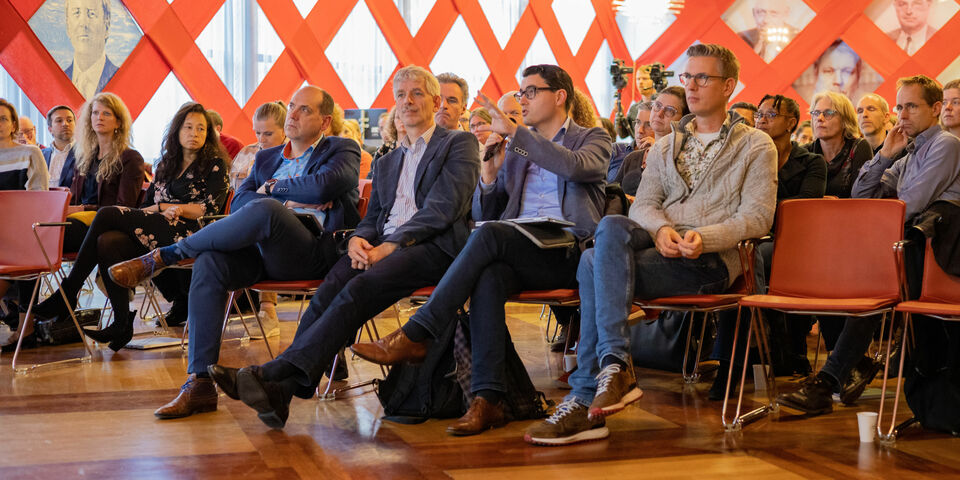“We want to put a face on Research Support”
Many scientists regret the fact that they need to spend valuable time on research conditions. Applying for funding, setting up contracts with new colleagues, complying with laws and regulations and other rules are all ‘part of the job.’ That is why the Executive Board set in motion the Research Life Cycle Support project a year and a half ago. The provisional plans were presented Tuesday afternoon.
After having spent an hour listening to a presentation by the team of which he himself is a member, professor Niels Deen asks for the microphone. He wants to share a realization that came to him just now: “This is exactly what it’s all about. It dawned on me as I was watching the video (which informs the audience in the Senate Hall of the purpose behind RLCS ed.). Even though we’ve emailed several times, I’ve never met Theo Elfring in person before, but there he is in the video. This is the first time I’ve seen this employee of the legal office. That is so much better. We need support with faces, not with email addresses.”
Renee Westenbrink, head Research Policy at General Affairs and host of this afternoon’s presentation, wholeheartedly agrees with Deen. Westenbrink, who gained experience at the University of Twente and the University of Groningen, says that it shouldn’t be that hard for people at a relatively small university like TU/e to get to meet and know each other.
Seek contact
That doesn’t mean that people aren’t expressly encouraged to seek contact via researchlifecycle@tue.nl whenever they have a question or remark. “The implementation of a Research Life Cycle Support is a bottom-up process. That’s what makes it rather difficult,” says Robert van der Drift, managing director at Mathematics and Computer Science. Van der Drift, who carries chain responsibility for RLCS, acknowledges that the title of ‘support staff’ brings him no joy. “I understand that ‘professional staff’ isn’t much better, but it’s about professionalism in teamwork after all.” He also confesses that he wasn’t immediately convinced that a chain approach would be the best approach. “Because that also brings about a limitation. In fact, I don’t want people to feel as if they are in chains at all. Feel free to make your own decisions. That requires a culture where people know where to find each other.”
Such a culture will hopefully come into being by efforts of the Research Support Office. The idea is to establish short lines of communication between scientists and staff members – at every department and service – to help people with their research funding requests, the recruitment of new researchers, while applying with ethical and judicial standards, etcetera. “The information needs to come from one central location, and it needs to be customized and up-to-date,” according to fourth team member Patricia Jaspers, managing director at AI institute EAISI.
Compliancy
The Research Support Office doesn’t want scientists to have to reinvent the wheel every time. Complying with laws and regulations (compliancy) is especially demanding, as the response of those present at the presentation shows. Everyone in the audience is involved with this issue and has been told several times before that research support is necessary, in view of the ever-increasing competition between universities when it comes to recruiting new talent and applying for research funding. The developments in open science, the new Recognition and Rewards system for scientists, and the increasing focus on knowledge safety have made it increasingly complex for scientists to conduct research, Westenbrink explains. The final goal is very basic: more job satisfaction among researchers by decreasing work pressure, and more impact when it comes to solving social problems.


Discussion